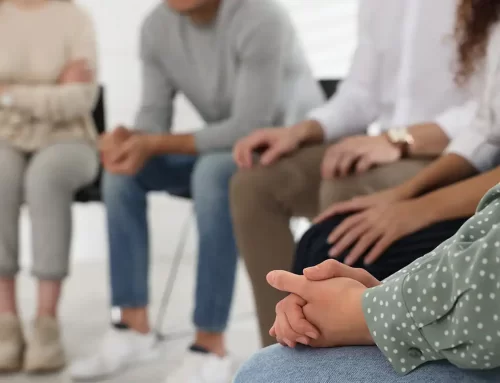
A sober living facility must offer a robust support system to help people remain clean from substance abuse. In many cases, this starts with a culture of sobriety in the home. For example, several sober living homes enforce rules regarding AA meeting attendance. They also house several people striving to live a sober lifestyle, helping “iron sharpen iron.” One way to develop this culture is to provide group therapy for your residents. Attending therapy in a group setting can go a long way to helping an addict in recovery.
If you’re wondering how to start a sober living home, start by deciding how to incorporate group therapy. If you’re unsure how to do that, keep reading! We’ll explore the benefits of group therapy.
Group Therapy Sessions Combat Isolation
It can feel like a lonely process when people begin to combat their addiction. It often brings a sense of isolation, depression, and shame.
These issues become especially prominent if much of an addict’s social group revolved around substance abuse. If people have to cut off their friends to make a recovery, it leaves them feeling alone.
This sense can often drive people back to their worst habits. The same holds for a sense of shame.
Many people feel intense shame when they break away from drugs. In many cases, drug abuse results from people coping with past abuse. Facing these memories without drugs can bring up past feelings of inadequacy and fear.
Each of these issues can be incredibly challenging to face alone. That’s why group therapy can be so beneficial.
Group therapy places recovering addicts in a room together where they can safely express their fears, concerns, and feelings. Crucially, they’ll do so with the guidance of a qualified therapist.
Without a qualified therapist, recovering addicts could accidentally relapse into their substances. However, a therapist can guide the conversation and ensure it remains on track without straying into harmful territory.
Group Therapy Helps You Build Connections
One of the struggles for an addict in recovery is the loss of relationships. Often, this comes in two forms.
First, addicts often damage their relationships with friends and family when they abuse a substance. Because of this, those loved ones may not be ready to reconcile when addicts start their recovery journey.
Second, many substance abusers have social networks that revolve around that substance. Many alcoholics have a group of drinking buddies, for example.
Neither group may readily understand what it’s like to recover from addiction. However, other addicts in a group therapy session understand precisely what the others are going through.
This environment can help people build new connections with others who comprehend their journeys. Over time, that group can become a new social network.
The group therapy session can also strengthen attendees’ healthy habits. They may show up more regularly and punctually. Likewise, they can respect the rules of the meeting and foster growth for other attendees.
Group Therapy Can Improve Communication Skills
Group therapy can go a long way toward improving communication skills. Many people believe they are good at communicating, but it’s a rarer gift than most realize.
For example, many people do not listen well. They may hear the words someone says but don’t process their meaning or why they said these things. Likewise, many don’t realize whether their “listener” has actually listened to their words.
Group therapy can help people develop communication skills and tremendously improve their lives. After all, people rely on communication for several things.
Good communication skills can help addicts get a new job. It can also improve their understanding of their own feelings. People often discover new ways to consider their feelings and experiences when they share them with others.
Finally, communication skills can also help addicts repair their broken relationships. Their loved ones may not understand what an addict has gone through or why they’ve acted as they have.
Communication skills can help an addict in recovery explain what they’ve gone through to their past loved ones. In the process, a loved one may be more willing to let an addict back into their life.
Finally, it can also help an addict come to terms with the harm they’ve caused in past relationships. In doing so, they can work to overcome that in the future.
Receive a Broader Range of Feedback with Group Therapy
Many people believe that they know themselves better than anybody else. However, many scientists and psychologists beg to differ. Studies discovered that others often know us better than we know ourselves.
That’s why group therapy feedback can be so beneficial. When a group gives their perspective about an addict’s experiences to the person, it can correct distortions in that person’s self-image.
Sometimes, this therapy can even work better than individual therapy. Even the most qualified therapist can have biases and blind spots when dealing with patients. They may provide feedback that a client disagrees with on rational grounds.
However, a group can offer many differing views for a person to consider. Alternatively, many people in the group may reinforce a given piece of feedback.
This group can help an addict see when they’re acting or thinking irrationally. It can also give them advice on how to move forward from their addiction and create better habits. Group therapy participants can share what practices have helped them combat their addictions.
Decide Whether Group Therapy Is Right for You
Group therapy offers several benefits for participants. It can help many people work together to overcome their addiction and build a culture of sobriety.
As you consider how to start a sober living home, consider hiring a qualified therapist for your house. This therapist can counsel your residents and help them combat their addiction.
To that end, consider working with our therapists! We offer several resources to help your residents recover from addiction. Contact us today to learn how we can assist you!









